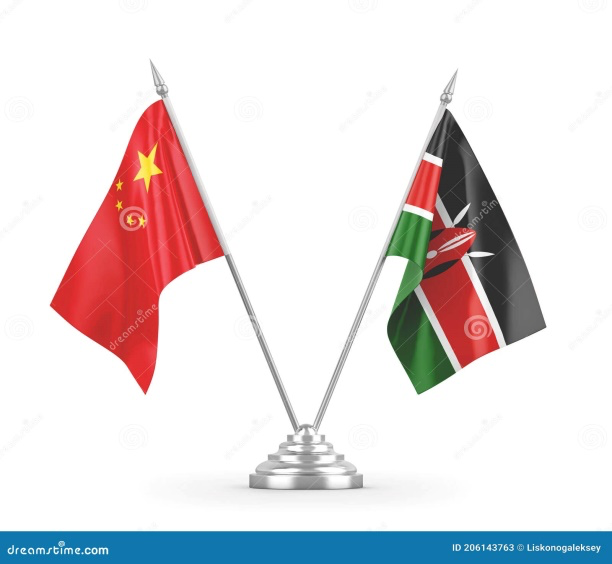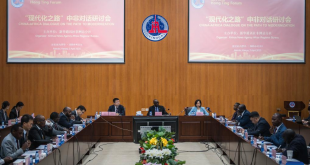Published: 05,2024

Dressed in elegant attire, Magdalene Wangui was among the hundreds of visitors attending the official opening of China Trade Week on Wednesday at a convention center in Nairobi, Kenya’s capital.
Wandering through the exhibition hall where Chinese firms displayed an array of products, ranging from solar panels to agricultural machinery and automotive parts, Wangui paused frequently to inquire about prices.
Wangui, in her mid-30s, is an entrepreneur with ventures in fashion design and farming. She said that she employs several young people to help her produce yarn for carpets, sweaters and blankets, while also managing a small farm.
Her goal at the exhibition was to explore Chinese-made equipment, such as knitting machines, sprayers and solar batteries, which could boost her businesses.
“I have been searching for a yarn-making machine since I am into designing clothes, and I have been considering importing one from China because their quality is reliable,” Wangui said.
At the Shenzhen Mistei Lighting Technology Co. Ltd booth, the brightly colored solar equipment on display caught Wangui’s eye. She was particularly interested in purchasing a solar battery to address the frequent power outages in her neighborhood.
China Trade Week, in its ninth edition, featured over 120 companies, including 85 from China, and runs through Friday. The event includes panel discussions, exhibitions, business matchmaking, and partnership deals. The event continues to solidify its role as a bridge for Kenyan entrepreneurs, offering them access to affordable, high-quality products and a pathway to expanding their businesses.
Chinese firms, covering sectors like new energy, textiles, information and communications technology, construction and agriculture, have turned heads among local entrepreneurs.
Kevin Ogwang, a marketer for a clearing and forwarding firm in downtown Nairobi, attended the event to seek partnerships with Chinese manufacturers. In the course of his tour, he encountered a variety of products from sleek fabrics and shoes to electric cables and utensils.
“Visiting China Trade Week was essential for connecting with suppliers from China and linking them to our local clients,” Ogwang said, adding that Kenya’s young entrepreneurs could benefit from access to Chinese manufacturers, particularly in building materials, solar solutions and farm equipment.
For Zhongqing Ye, manager of Ningbo DaBu Welding Technology Co. Ltd., the event offered an opportunity to expand their presence in the Kenyan and African markets. She said that Chinese-made welding machines and protective masks were well received by visitors, adding that local partnerships would be vital for increasing visibility.
Likewise, Karl Yang, overseas department manager at Shenzhen Mistei Lighting Technology Co. Ltd., was enthusiastic about engaging young visitors interested in solar products such as batteries, power banks and lighting equipment. Yang praised the growing renewable energy sector in Kenya and anticipated strong collaborations with local distributors to promote solar technologies.
Wycliffe Oparanya, the cabinet secretary for Kenya’s Ministry of Cooperatives, Micro, Small and Medium Enterprises Development, said that China Trade Week, held in conjunction with the Africa Build Show 2024 and Africa Technology Show 2024, underscored the strong commercial ties between Kenya and China.
The event serves as a platform for local startups to explore new markets, capital and technology from their Chinese counterparts, Oparanya said.
Gilbert Mwangaza, director of a general supplies startup, said his visit to the exhibition hall revealed several Chinese-manufactured products, including solar equipment, motor vehicle spare parts and industrial machines, which his clients would be keen to purchase.
“I found many things that interested me, especially the spare parts for vehicles. The prices are very favorable for businesspeople like us,” Mwangaza said.
Xinhua
 Africa -China Review Africa -China Cooperation and Transformation
Africa -China Review Africa -China Cooperation and Transformation
